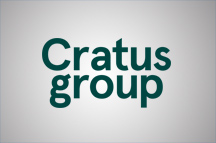As the local elections approach on May 1, the Conservative Party finds itself on the defensive. With over 1,600 council seats and six mayoralties up for grabs across 23 English local authorities, the Tories are facing one of their most significant political tests in recent memory. This isn’t just about potholes and planning permissions — these elections could be a major indicator of the party’s standing with the public ahead of the next general election.
The challenge is clear: of the 23 councils going to the polls, 19 are currently under Conservative control. Many of these seats were last won in 2021, at a time when Boris Johnson was still riding a wave of popularity. Fast forward to 2025, and the political landscape has shifted dramatically. The Conservatives are now neck-and-neck in national polling with both Labour and Reform UK, and their grip on local power is looking increasingly fragile.
In areas like Derbyshire and Lancashire, which have historically swung between the two main parties, Labour is hoping to make big gains. These councils have been held by the Tories since 2017, but rising dissatisfaction with the national government, combined with strong local Labour organisation, could tip the balance.
At the same time, the Conservatives are also being squeezed from the right. Reform UK is fielding more candidates than ever before and has its sights set on traditionally Tory rural strongholds. In places like Greater Lincolnshire and Staffordshire, Nigel Farage’s party is hoping to split the vote and chip away at Conservative dominance. Even if Reform doesn’t win big, it could still cost the Tories critical seats.
The Liberal Democrats are also mounting a serious challenge, particularly in the South West. Their well-organised local operations and clear messaging on issues like the NHS and sewage pollution could lead to significant Conservative losses in counties like Devon, Cornwall, and Gloucestershire.
For Kemi Badenoch’s Conservatives, these elections could signal a realignment in local politics and a shrinking of the party’s grassroots power. If the Tories suffer heavy losses, it may deepen internal tensions and further complicate their path to recovery before the next general election.
May 1st might not decide who governs the country, but it could reshape the local political map — and reveal just how much trouble the Conservatives are really in.














